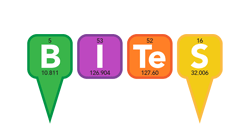I just finished teaching our 2nd semester general chemistry course. For most Smith students, this is their last course in our introductory sequence; they are taking the class as 2nd semester sophomores (our sequence goes gen chem 1, organic 1, organic 2, and gen chem 2). Officially this class is called "Introduction to Inorganic and Physical Chemistry," but since we've moved coordination compounds to gen chem 1, it's been very light in the inorganic part for the past couple of years. So, I decided to bring a bit of solid state chemistry into the class this year using materials from our 2
 It's been a crazy week for a lot of the leadership council. We have assembled here in beautiful Evanston to host the second NSF-TUES funded faculty development workshop. This week's theme is bioinorganic chemistry, especially how to incorporate it into the undergraduate curriculum.
It's been a crazy week for a lot of the leadership council. We have assembled here in beautiful Evanston to host the second NSF-TUES funded faculty development workshop. This week's theme is bioinorganic chemistry, especially how to incorporate it into the undergraduate curriculum.